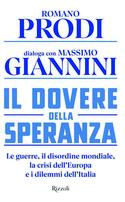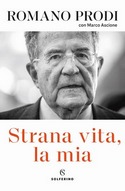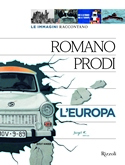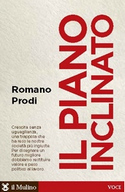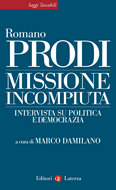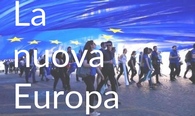A real reform of the United Nations and a military permanent force to implement its decisions
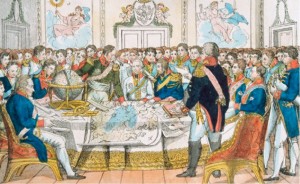 Una profonda riforma dell’ONU ed un esercito comune per farne rispettare le decisioni
Una profonda riforma dell’ONU ed un esercito comune per farne rispettare le decisioni
The Congress of Vienna was the first major powers‘s global meeting aimed to bring order after the French Revolution and Napoleon.
According to Henry Kissinger, it anticipated “The Security Council of the United Nations” and ensured peace and stability. It set the stage for the birth of the current notion that a diplomatic agreement is always preferable to the destruction of the war.
Even the non-pacifist Winston Churchill admitted that “diplomatic blah blah is surely preferable to war”.
Opening Remarks by Romano Prodi at The Congress of Vienna 2015 on October, 22 2015
La traduzione italiana dell’intervento è disponibile qui.
The Congress of Vienna in 1815: lessons from history
Ladies and gentlemen, authorities, dear friends, it’s a great pleasure and a real privilege to open The Congress of Vienna 2015.
I am not a diplomatic historian. And accordingly, I will not delve into the historical details of the Congress of Vienna.
But in order to clarify the social and political context in which the Congress took place, it seems useful to remind you a few figures about the tragedy of the Napoleonic wars. Although casualties of war are always difficult to measure, France, which was the only country with reliable statistics, lost about 1,3 million people during the wars and a similar number of people were wounded. Since at that time France had approximately a 30 million population and the losses were mainly concentrated in the male population, we can easily conclude that the war was an incredible tragedy for France. Other European countries, such as Germany and Russia, experienced even heavier losses. These were the social, political, and human conditions in which Europe was at the beginning of the Congress of Vienna.
From the history classes of primary school we have learned that the Congress of Vienna was the starting point of European Restoration after the radical transformations brought about by the French revolution and the Napoleonic wars. Such a reading of history is, of course, correct. However, gatherings like the one we are participating today are useful if we examine these distant days not only as a conservative attempt to re-establish an old political system and a new international equilibrium, but as the roots of events that were going to re-shape Europe. Indeed, the Old Continent was on the verge of a new era.
The question was not simply creating a new balance of power.
The statesmen of the Congress had to tackle new realities, which had primarily a political and cultural nature rather than a merely military or diplomatic dimension.
The organizers kindly asked me to speak about the future prospects of the world order and related issues like the possibility of cooperation among major powers.
I would like to begin such an “impossible” task with a brief reference to Henry Kissinger’s first book. I am referring to his seminal analysis on the Congress of Vienna: the rightly famous A World Restored.
In his classic study, Kissinger made a fundamental distinction between legitimate and not legitimate international orders depending on the existence of a “common code of conduct” among nations.
Kissinger added that, while international politics is often described as a system determined by the physical and material elements of power, the role played by intangibles such as the sense of a ‘common purpose’ is absolutely relevant.
In particular, Kissinger stated that the order of the Concert of Europe relied not only on the material balance of power, but primarily on a sense of “shared values” among European states.
When that “common code of conduct” faded away, the Congress system stopped working.
Indeed the history of the Concert of Europe, as Kissinger told us, was a story of success but also of failure. The Congress system was not able and could not restrain the political force that the Concert itself was designed to contain.
That political force was, of course, nationalism – a force that was going to change the political map of Europe in the late nineteen-century and the political map of the world in the twentieth century.
In this total new world the dynastic principle was replaced by the idea of the nation state, which gradually began to dominate European politics.
In the years following the Congress of Vienna, European great powers seemed to consolidate their empires and influence, but in reality a new conflict began. Such a conflict was initially formed by many small wars around Europe that took place at different times, but which all contributed to the triumph of the nation and, then, to the end of the old continental Empires.
Nationalism succeeded, for example, in transforming the Italian Peninsula, in the famous words of Metternich, from a “geographical expression” into a state.
In the following decades, the birth of other nation-states like Germany, Romania, Serbia, Montenegro, Bulgaria, Albania jeopardized the system created by the Congress of Vienna and ended up in the tragedy of the First World War.
In so doing, the previous ‘common code of conduct’ was definitively buried.
Following Kissinger’s logic, one may suggest that even the present international disorder is the result of a lack of ‘a common code of conduct’.
In the European theatre of 200 years ago one aspect of this “common code of conduct” was religion embodied in the Holy Alliance: an alliance between the throne and the altar was considered a necessary instrument to restrain the revolutionary movements around Europe.
Now, after the end of the cold war, we do not need anymore a “holy alliance”, but rather a “great alliance“, capable to create new cooperative regimes and dialogue among the great powers as it was tried in Vienna in a world dominated by European states.
If we want to update the word “holy” in the contemporary context, we have to remind that religions may have still a significant role in the world, but “religions” in the plural, and not only Christianity as it was for Europe in the past two centuries.
Even today religions can and must offer a great contribution to the future of mankind, refusing violence as a political instrument and creating (as it was not the case in 1815) a just distance between the throne and the altar.
Is there a common code of conduct today? This is not an easy question to answer because, examining the current world, we find ourselves in a very peculiar situation. While there is a global convergence in the economic area – indeed market economy is prevailing everywhere – and there are also many common interests and daily cooperation, countries like China, Russia and the United States don’t share a common political culture.
Difficulties in solving relative crises like in Libya, Syria, and Ukraine may derive not only from opposing interests, but also because the great powers diverge on basic questions like domestic political institutions, democracy promotion abroad, human rights, and many other political values that are at the basis of our societies.
Although the absence of a common political culture, as Kissinger rightly argued, is certainly a problem for constructing a legitimate world order, it’s not an insurmountable obstacle to its realization. There is still a role for diplomacy.
Let us take the example of the recent treaty on the Iranian nuclear program. Although no one is in the position to tell whether the agreement will contribute to stabilize the region, the treaty marks a new beginning for American-Iranian relations in a very important area, after more than 35 years of diplomatic closure.
Thanks to a great diplomatic effort by both parts, the fears concerning the Iranian nuclear program have been channeled in a constructive way.
Nobody knows whether the agreement will have a stable happy end, but diplomacy was the key to prepare a solution of the tension between Iran and the international community. And I believe, more generally, that the possibility of constructing a new legitimate world order would be helped by the revival of diplomacy as an instrument of foreign policy.
But a necessary condition to revive diplomacy is an attitude of compromise that helps to understand the point of view of other nations, especially of those countries that are considered as strategic rivals.
In other words, the United States should recognize the values, the legitimate interests, and the security concerns of China and Russia. On the other side, Beijing and Moscow should recognize the legitimate interests of the United States and Europe and the importance of the liberal values at the basis of our societies.
In his most recent book – World Order – Kissinger identifies as one of the major shortcomings of the present international order the absence ‘of an effective mechanism for the major powers to consult and possibly cooperate on the most consequential issues’.
Doubtless, the results of many multilateral institutions like the G8 and the G20 are disappointing and often amount to a mere declaration of intent, with few real practical consequences.
This is the reason why I do believe that a potential method of global governance could be a “quadrangle relationship” among China, the European Union, Russia, and the US.
Although we should not forget the very important role played by the so-called BRICS countries, I think that a cooperative regime based on a sort of quadrangle governance is a viable (even if temporary) instrument to pull the various related questions together under one single political umbrella.
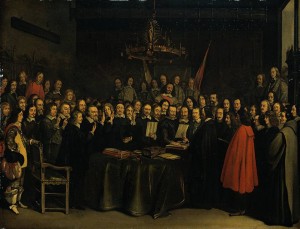 In other words, we need a great Concert among the main world players in facing today challenges: in Central Europe (especially in Ukraine), in the Middle East, and in Asia. And this list is not certainly exhaustive. This has been done in 1648 with the Peace of Westphalia, in 1815 in Vienna, and (to some extent) in 1945 in San Francisco, as Kissinger remarks in his “World Order”.
In other words, we need a great Concert among the main world players in facing today challenges: in Central Europe (especially in Ukraine), in the Middle East, and in Asia. And this list is not certainly exhaustive. This has been done in 1648 with the Peace of Westphalia, in 1815 in Vienna, and (to some extent) in 1945 in San Francisco, as Kissinger remarks in his “World Order”.
However, we seem to move in a different direction: towards new confrontations, which are likely to deepen the existing crises.
Different goals and different strategies prevail: goals and strategies that don’t take in due account the changing political and economic weight of emerging powers.
China is betting on its economic growth and on the possibility to achieve in the coming years the technological and military levels of the United States. As a consequence, today China is not eager to modify the existing rules of the game. Beijing thinks that time is on her side because Chinese leaders know that they will be more able to influence the international agenda in the future when China will be stronger.
Not coincidentally, China is creating its own institutions, such as the Asian Infrastructure and Investment Bank, and is massively investing in new logistical routes like the new Silk Road.
Understandably, the US still considers itself as a dominant power in many fields. Despite a relative loss of economic weight and influence, the US is still well placed in the world and does not want to change the balance inside international Institutions like the United Nations, the International Monetary Fund, and the World Bank.
Russia is, instead, relying both on the personal ability of President Putin and on the well-known Russian tradition to resist any foreign challenge.
Europe is too fragmented and divided to be considered one of the four pillars in the international system. Europe is a strange combination of strength and weakness: it is one of the biggest economic players in the world, but it still remains a political dwarf.
Or, to use a different metaphor, Europe is a “giant with the feet of clay” that does not move because it is too afraid to collapse.
Europe has decided to refuse to politically exist in the world or, even worse, it seems not to find a reason to exist. The present state of the Union is particularly disappointing because until a few years ago the European Union was not only an institution, but an ideal of democracy and solidarity.
Celebrating the anniversary of the Congress of Vienna we have to recognize and underline the European contradiction. The European Union, born in order to overcome the tragic consequences of an exasperated nationalism is now becoming more and more under the dominance of its member states.
The Europe Union was born to create a closer and closer cooperation among its different countries, based not on the strength of individual states but on the principle of equal cooperation.
For almost two generations this effort was broadly successful in spite of ups and downs, which are always inevitable aspects of the historical process.
Integration among European countries has materialized not only in the gradual construction of a common market, but also in the free circulation of goods and people, until the creation of the common currency.
It seems useful to remind that the two main pillars of modern statehood are the army and the currency.
A common army, potentially the symbol of the new Europe born after the tragedy of the Second World War, was vetoed by the French Assembly in 1954, but almost after half a century the creation of a common currency gave the message that the transformation of the modern nation-state was taking place. This new and brave project was paralleled by another historical achievement: the enlargement of the Union not only to the countries previously belonging to Western Europe but also to the former members of the Warsaw Pact.
For many reasons, it has been a great success: the only case in history of a massive “exporting of democracy” abroad through really democratic and peaceful instruments.
None like the citizens of Vienna can testify the meaning and the importance of the enlargement of the EU.
This process of “democratic growth” was generated and accompanied by the progressive growth of the two main European supranational bodies: the European Commission and the European Parliament.
However, in recent years, especially after the beginning of the economic crisis, an opposite direction has been taken with a return of the nation-states, with the consequent shift of power from the Commission to the member states and with the construction of a pyramidal structure among European nations.
The European Central Bank has now become the most important supranational body of the Union. Actually, we have to be truly grateful to the European Central Bank for having preserved in its monetary policy a European perspective even in the most difficult times. Nevertheless, it is clear that its actions cannot replace the role of the democratic bodies, which were supposed to build and run the Union.
Apologies if I have dedicated too much attention to the European experiment, but my considerations are meant to emphasize that, without a renewed unity, the European states will not play any significant role in world politics, while two centuries ago they were the only real players.
Leaving now aside Europe, we have to conclude that even the other three great powers (China, Russia, and the US) are very far from having built what Kissinger defined as “an effective mechanism to consult and possibly to cooperate on the most consequential issues”.
At the moment such a mechanism does not exist even in that area in which all great powers have a common, shared interest like the fight against international terrorism.
Not only terrorism is a threat for all major powers, but it is clear that only a truly global action can defeat the global peril posed by terrorist organizations.
Nevertheless, at present it does not seem possible to build the “common code of conduct” necessary to put in action a common response.
If it’s difficult to find a common policy for a problem where the “common interest” is so clear, it will be even more difficult to tackle with a common action the other great challenges that we are now facing, such as the never ending problem of migrations, poverty alleviation in underdeveloped countries, and the increasing disparities within almost all countries of the world. In fact, we are not facing only a global political disorder, but also a series of social and economic disorders.
There should be another chapter to open, a chapter that marks a difference from Kissinger book about Vienna and today problems.
The sovereignty is not anymore limited by the geographical borders of the nations. Sovereignty today is more diffuse and hidden. There are new players in the world ground: new technologies, new borderless financial realities, new networks that fly uncontrolled over all our planet.
New invisible networks shape the world in directions that no one by itself is able to control. Indeed the US, Russia, China and, hopefully, Europe should invent and implement a renewed “common code of conduct” necessary to devise innovative solutions for these new great challenges that are in front of us.
From this viewpoint, great powers have a number of demanding tasks to accomplish.
- First task: increasing the cooperation in specific areas like Ukraine, the fight against Isis, and Syria in order to avoid that these conflicts become deep-rooted like the Israeli-Palestinian question.
- Second task: devising mechanisms of permanent cooperation and exchange of information regarding the great challenges facing mankind like environment degradation, migration, growing inequality, and the new financial and technological networks. Not coincidentally, Chinese President Xi Jinping and President Obama had a long meeting concerning cyberwarfare. This is certainly a positive step in the direction of global cooperation.
- Third and final task to accomplish: reshaping and refund the UN system, since we live in a world significantly different from 1945. Our problems are more and more global and (like it or not) the United Nations is the only international institution with a real global dimension.
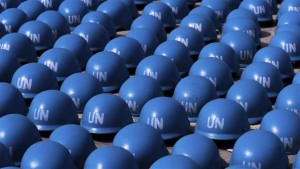 We need a strong reform of the United Nations system. Here I am not referring to cosmetic changes, but rather to real reforms giving the UN the appropriate instruments and investments for implementing the decisions adopted. The creation of a military permanent force, as it was proposed in 1945, is not an easy project to develop, but (I repeat) we need appropriate instruments to implement UN decisions.
We need a strong reform of the United Nations system. Here I am not referring to cosmetic changes, but rather to real reforms giving the UN the appropriate instruments and investments for implementing the decisions adopted. The creation of a military permanent force, as it was proposed in 1945, is not an easy project to develop, but (I repeat) we need appropriate instruments to implement UN decisions.
I understand that there is a high level of utopia in these proposals. An even higher level of utopia because today we are celebrating the Congress of Vienna, the paramount expression of real politic. And an additional utopia after having discussed how difficult is it to overcome the national interest even when a state is a member of a shared pact as it is the case of the European Union. Nevertheless it’s time to think to some bold action in order to save the future of our beloved mankind.
Since a good speech is a brief speech, I will stop now here.
But before leaving the floor, let me thank our hosts for the kind invitation and for the organization of this impressive conference.
I wish you a great Congress!






